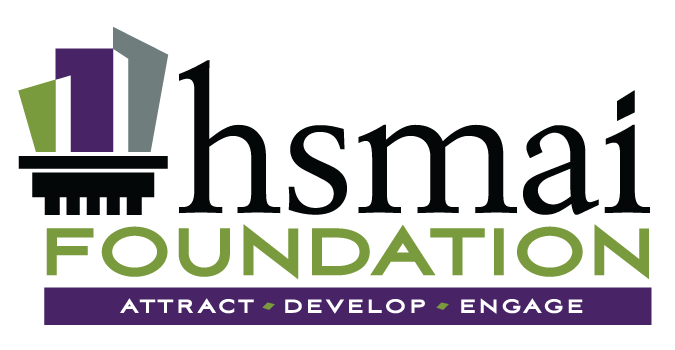The hospitality industry is entering a new era of digital transformation. By the end of 2026, Milestone’s research across more than 3,500 websites predicts that half of all search traffic will f low through AI engines such as ChatGPT, Google AI Overviews, Bing Copilot, and Perplexity.
This represents a fundamental change in how guests discover and evaluate hotels. Instead of browsing through dozens of links, travelers will increasingly expect direct, conversational responses that provide recommendations, itineraries, and booking options.
For hotel executives, the implications are clear:
- Traditional SEO is no longer sufficient. Visibility in AI-powered search is essential.
- Guest expectations are rising. Personalization, instant answers, and seamless booking are now baseline requirements.
- The entire customer journey must be reimagined. From discovery to purchase, hotels need AI-native platforms that automate and personalize interactions.
This eBook provides a roadmap for hoteliers to future-proof their digital strategies
Read the full report here: ebook-how-ai-is-changing-hospitality-customer-journey










 Reem Alaqili is a fourth-year international student studying hospitality management at The Pennsylvania State University. She serves as president of the National Society of Minorities in Hospitality (NSMH) and as secretary of Penn State’s HSMAI Collegiate Chapter, where she first stepped into leadership as public relations chair. Reem has completed two internships with Marriott Vacations Worldwide, gaining front desk experience while shadowing sales operations and strengthening her expertise in guest service and sales. Passionate about hospitality sales and marketing, she has actively pursued leadership, service, and professional development opportunities to grow her skills. She aspires to build a career in hospitality sales and marketing, bringing an international perspective and a strong drive for success to the industry.
Reem Alaqili is a fourth-year international student studying hospitality management at The Pennsylvania State University. She serves as president of the National Society of Minorities in Hospitality (NSMH) and as secretary of Penn State’s HSMAI Collegiate Chapter, where she first stepped into leadership as public relations chair. Reem has completed two internships with Marriott Vacations Worldwide, gaining front desk experience while shadowing sales operations and strengthening her expertise in guest service and sales. Passionate about hospitality sales and marketing, she has actively pursued leadership, service, and professional development opportunities to grow her skills. She aspires to build a career in hospitality sales and marketing, bringing an international perspective and a strong drive for success to the industry. Margaret Thompson recently graduated from Boston University with a bachelor’s degree in hospitality administration, concentrating in event management and marketing. She will begin pursuing a master’s degree in global hospitality management at New York University this fall. During her undergraduate career, Margaret built a strong foundation in event planning, marketing strategy, and hospitality leadership, which she now looks forward to expanding through graduate study. A dedicated member of HSMAI, she is eager to continue her involvement with the organization and to build a successful career in hospitality leadership.
Margaret Thompson recently graduated from Boston University with a bachelor’s degree in hospitality administration, concentrating in event management and marketing. She will begin pursuing a master’s degree in global hospitality management at New York University this fall. During her undergraduate career, Margaret built a strong foundation in event planning, marketing strategy, and hospitality leadership, which she now looks forward to expanding through graduate study. A dedicated member of HSMAI, she is eager to continue her involvement with the organization and to build a successful career in hospitality leadership. Juliette van der Ham is a fourth-year student at Hotel Management School Maastricht, currently completing her final internship in asset management at Wasl Hospitality in Dubai. Her first internship took her to The Reykjavik Edition in Iceland, where she gained hands-on operational experience as a housekeeping supervisor. Juliette pursued a minor in strategic revenue and real estate management and completed a consultancy project focused on acquisition and development for a white-label operator. She has earned WSET and STR certifications and participated in the Excellence Program, later serving as external coordinator for multiple editions. In 2024, she joined the HSMAI Europe Student Council and was honored to serve as chair before relocating. She also competed in the Young Hospitality Summit, a global platform that encourages innovation. Passionate about the strategic side of hospitality, Juliette is dedicated to initiatives that foster collaboration, growth, and lifelong learning as she prepares to begin her career.
Juliette van der Ham is a fourth-year student at Hotel Management School Maastricht, currently completing her final internship in asset management at Wasl Hospitality in Dubai. Her first internship took her to The Reykjavik Edition in Iceland, where she gained hands-on operational experience as a housekeeping supervisor. Juliette pursued a minor in strategic revenue and real estate management and completed a consultancy project focused on acquisition and development for a white-label operator. She has earned WSET and STR certifications and participated in the Excellence Program, later serving as external coordinator for multiple editions. In 2024, she joined the HSMAI Europe Student Council and was honored to serve as chair before relocating. She also competed in the Young Hospitality Summit, a global platform that encourages innovation. Passionate about the strategic side of hospitality, Juliette is dedicated to initiatives that foster collaboration, growth, and lifelong learning as she prepares to begin her career. Libby Worden, from Toronto, Canada, is a fourth-year hospitality and tourism management student at Toronto Metropolitan University and co-president of the Ted Rogers Sales Club. She recently completed an internship with HVS in Montreal, where she gained hands-on experience in hotel consulting and valuation. Libby has also worked in hotels across Canada and led her sales team to international recognition, including becoming the first Canadian team to win Overall University Champion at the International Collegiate Sales Competition in Florida. Passionate about hospitality, sales, and hotel real estate, she is committed to bridging the gap between academia and industry while pursuing a career in the field.
Libby Worden, from Toronto, Canada, is a fourth-year hospitality and tourism management student at Toronto Metropolitan University and co-president of the Ted Rogers Sales Club. She recently completed an internship with HVS in Montreal, where she gained hands-on experience in hotel consulting and valuation. Libby has also worked in hotels across Canada and led her sales team to international recognition, including becoming the first Canadian team to win Overall University Champion at the International Collegiate Sales Competition in Florida. Passionate about hospitality, sales, and hotel real estate, she is committed to bridging the gap between academia and industry while pursuing a career in the field.
